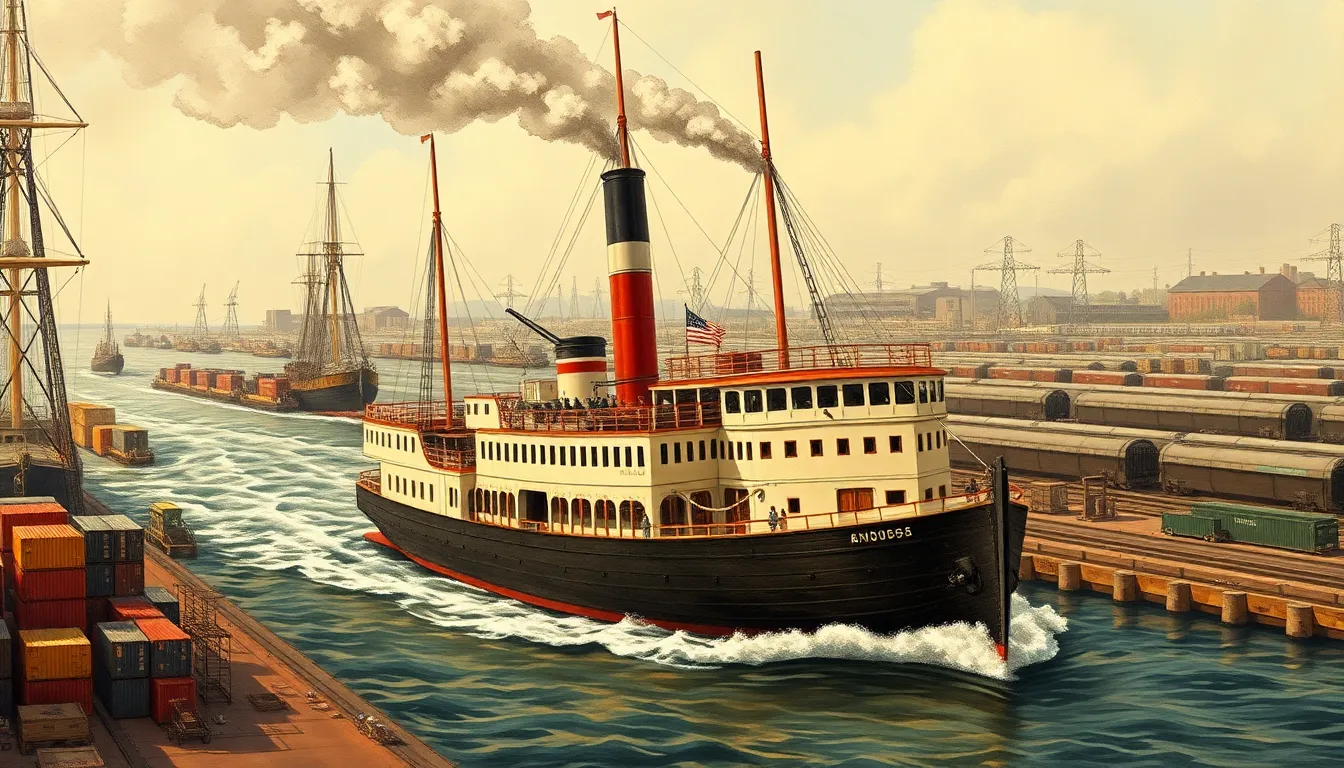Cornelius Vanderbilt, the man who turned railroads into gold and shipping into a fortune, often straddles the line between hero and villain in American history. Was he a savvy businessman or just another robber baron with a penchant for ruthless tactics? With a personality as big as his bank account, Vanderbilt’s legacy is a mixed bag of innovation and cutthroat competition that leaves many scratching their heads.
As the self-proclaimed “Commodore,” he didn’t just ride the wave of the Industrial Revolution; he created the tsunami. But with great wealth comes great scrutiny. Did his success come at the expense of the little guy, or was he simply playing the game better than anyone else? Dive into the world of Vanderbilt and discover whether he truly deserves the title of robber baron or if he’s just misunderstood.
Table of Contents
ToggleThe Life of Cornelius Vanderbilt
Cornelius Vanderbilt’s life reflects both entrepreneurial spirit and ambition. Born on May 27, 1794, in Staten Island, New York, his early years laid the foundation for his future success.
Early Life and Background
Vanderbilt came from a modest family; his father was a carpenter. At age 16, he started a ferry service, transporting passengers between Staten Island and Manhattan. This venture marked the beginning of his lifelong interest in transportation. Throughout his youth, he learned about business operations and honed his skills, which later played a key role in his career. Limited formal education did not hinder his progression; his drive and determination set the stage for remarkable achievements.
Rise to Prominence
By the 1850s, Vanderbilt shifted his focus to railroads, recognizing their potential. He acquired the New York Central Railroad, which propelled him to immense wealth. His strategic maneuvers led to consolidating several lines, enhancing efficiency. Through innovative management, he improved rail service and reduced operating costs. Vanderbilt expanded his empire further by acquiring the Hudson River Railroad and numerous other companies. His impact on transportation revolutionized the industry, solidifying his reputation as a dominant figure. Wealth accumulation came with controversies; competition often viewed his tactics as ruthless.
Business Practices of Vanderbilt

Vanderbilt’s business practices exemplified his ambition to dominate the transportation industry. His strategies combined innovation with aggressive competition, leaving a lasting impact on both shipping and railroads.
Innovations in Shipping
Vanderbilt transformed the shipping industry through key innovations. He modernized vessels, adopting steam-powered ships which significantly enhanced speed and efficiency. Cost reduction became a hallmark of his operations, allowing him to offer competitive rates. His focus on improving shipping routes connected essential trade hubs, facilitating quicker transportation of goods. By pioneering the concept of large-scale shipping lines, he solidified his reputation as a formidable player in maritime transportation.
Expansion into Railroads
Railroads captured Vanderbilt’s attention in the 1850s, leading to aggressive expansion. He acquired several key lines, notably the New York Central Railroad, creating a vast network that revolutionized travel and freight transport. Consolidation efforts improved operational efficiency, allowing for better service delivery. Investment in infrastructure expansions, such as bridges and terminals, played a crucial role in enhancing connectivity. Focus on integrating new technologies ensured that his railroads remained competitive against rivals.
Defining the Robber Baron Label
The term “robber baron” characterizes certain wealthy industrialists whose business practices sparked debate. Cornelius Vanderbilt may fit this label due to his aggressive tactics and significant wealth.
Characteristics of Robber Barons
Robber barons often displayed ruthless competition, prioritizing profits over ethical considerations. They pursued monopolistic strategies, eliminating or absorbing rivals to dominate their industries. Additionally, these figures frequently wielded immense political influence, securing favorable legislation to protect their interests. Exploitative labor practices contributed to their fortunes, as they often paid workers low wages while profiting from high demand. Ultimately, these traits embody the controversial nature of robber barons, reflecting both innovation and exploitation in pursuit of wealth.
Historical Context
The industrial revolution shaped the environment in which robber barons thrived. Rapid technological advancements and infrastructure development fueled economic growth during the late 19th century. Railroads, for instance, connected distant markets, transforming commerce and creating opportunities for ambitious entrepreneurs. Government policies often favored business expansion, granting subsidies and limited regulation. Social tensions emerged from disparities in wealth, as corporate magnates amassed significant fortunes while workers faced harsh conditions. This backdrop set the stage for figures like Vanderbilt to establish their legacies, igniting ongoing debates about their contributions and ethical implications.
Analyzing Vanderbilt’s Impact
Cornelius Vanderbilt’s legacy includes notable economic contributions and complex ethical considerations. These aspects invite a deeper examination of his role in shaping American industry.
Economic Contributions
Vanderbilt’s ventures significantly transformed both the railroad and shipping sectors. He increased operational efficiency through strategic consolidation. His acquisition of the New York Central Railroad modernized transportation on a grand scale. Enhancements in shipping, such as adopting steam-powered vessels, revolutionized trade routes. By prioritizing speed and cost reduction, he connected major trade hubs, fostering economic growth. Statistically, his networks supported the movement of millions of tons of freight annually. Vanderbilt’s investments in infrastructure further solidified his impact, ensuring lasting advancements in these industries.
Ethical Considerations
Ethical concerns arise when assessing Vanderbilt’s business practices. His aggressive competition often led to monopolistic control, prompting debates about fairness in the marketplace. Exploitative labor practices became a point of contention, as profits frequently took precedence over worker welfare. Critics argue that Vanderbilt’s tactics contributed to significant wealth disparities during the industrial revolution. Historical context reveals that government policies favored industrialists, raising questions about ethical boundaries in business. Evaluating his methods requires careful consideration of the potential societal implications embedded in his success.
Cornelius Vanderbilt’s legacy remains a topic of debate. His remarkable achievements in transforming the railroad and shipping industries showcase his entrepreneurial spirit and innovative mindset. However his aggressive business tactics and the resulting wealth disparities raise ethical questions about his methods.
Whether he’s viewed as a visionary or a robber baron depends on one’s perspective. As society continues to grapple with the implications of his actions it’s clear that Vanderbilt’s impact on American industry is both profound and controversial. Understanding this complexity is essential for a nuanced view of his place in history.





